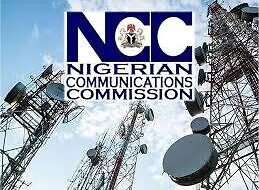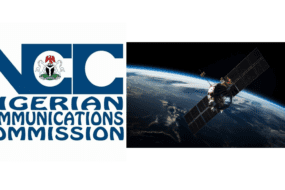The National Space Research and Development Agency (NASRDA) will start enforcing space regulation in Nigeria. This effort is supported by a ₦20 billion take-off fund approved by Nigerian President Bola Tinubu.
The Director-General of NASRDA, Dr. Matthew Adepoju, disclosed this in an interview with the News Agency of Nigeria (NAN) on Thursday in Abuja. He noted that while NASRDA has been tasked with regulatory functions under the NASRDA Act of 2010, these responsibilities had remained unfulfilled since the agency’s establishment in 1999.
Adepoju’s statement comes ahead of the NASRDA stakeholders’ workshop on space regulation, scheduled for April 8. He revealed that after assuming office, he submitted a memo to President Tinubu emphasizing the urgent need to enforce NASRDA’s regulatory functions.
“When I raised that memo stating that our space can no longer be unregulated, Mr. President graciously approved the take-off fund of N20 billion a few months ago,” Adepoju said. “This will enable us to commence space regulation and spectrum management in Nigeria. If we do not take charge of our space sector, it will continue to be misused, with potential security implications.”
Despite the approval, NASRDA has yet to access the N20 billion as the release of funds depends on availability. However, Adepoju confirmed that preparations are underway, and the agency is ready to begin its regulatory and licensing functions.
Regulation Across Space Segments
Adepoju outlined the three key segments of the space sector that NASRDA will regulate:
- Upstream – Covering deep space operations and activities beyond Earth’s atmosphere.
- Midstream – Encompassing objects like satellites and other space technologies positioned between Earth and outer space.
- Downstream – Involving ground stations, businesses, and individuals using space-based products and services.
He stressed that regulating these sectors is essential to prevent Nigeria from being exploited, ensuring that individuals and businesses adhere to guidelines and licensing requirements.
“The spectrum within Nigeria must be monitored, and people operating in the space industry need to be licensed,” Adepoju stated. “This regulatory framework has been in place since 2010, and enforcing it will come with many benefits.”
Licensing and Oversight for Space-Based Services
NASRDA has now set up a licensing platform, which is open to both public and private sector operators. The licensing framework will apply to all users and providers of space-related products and services, including satellite image providers, Geographic Information System (GIS) operators, and satellite-based telecommunication and broadcasting services.
Adepoju also highlighted the potential security risks associated with unregulated geographical data intelligence, noting that if left unchecked, non-state actors could exploit such data for illicit activities.
Boosting National Security and Economic Growth
According to the NASRDA DG, implementing space regulation will strengthen national security, support economic diversification, and enhance local content development. He added that Nigeria stands to generate significant revenue from industries such as oil and gas, shipping, and telecommunications, all of which depend on space-based technology for their operations.
With the regulatory framework now in place, NASRDA is poised to take a more active role in overseeing Nigeria’s space sector, ensuring that all activities align with national interests and international best practices.







4 replies on “Tinubu Approves N20bn For NASRDA’s Space Regulation In Nigeria”
[…] minister also noted that space technology will play a key role in securing revenue from the oil and gas industry. According to Nnaji, […]
[…] project supports President Bola Ahmed Tinubu’s Renewed Hope Agenda, which aims to boost Nigeria’s digital economy. The startup hub […]
[…] President Bola Tinubu signed the Nigeria Data Protection Act (NDPA) into law on June 12, 2023. This law replaced the old Data Protection Regulation from 2019 and now serves as Nigeria’s main legal guide for data privacy. The NDPA moved the responsibility from NITDA to the NDPC, giving the commission full control over data regulation. […]
[…] President Bola Tinubu congratulated Oyinlola in a post on X, saying the GPS tracker can help many industries and everyday life. He described the invention as a sign of what Nigerian youth can achieve when given the chance. […]